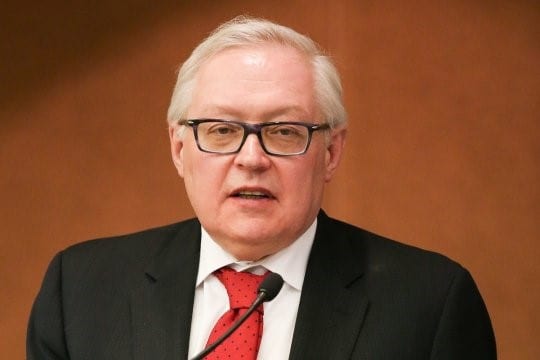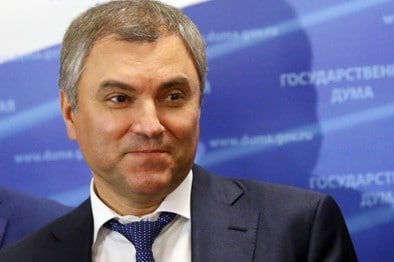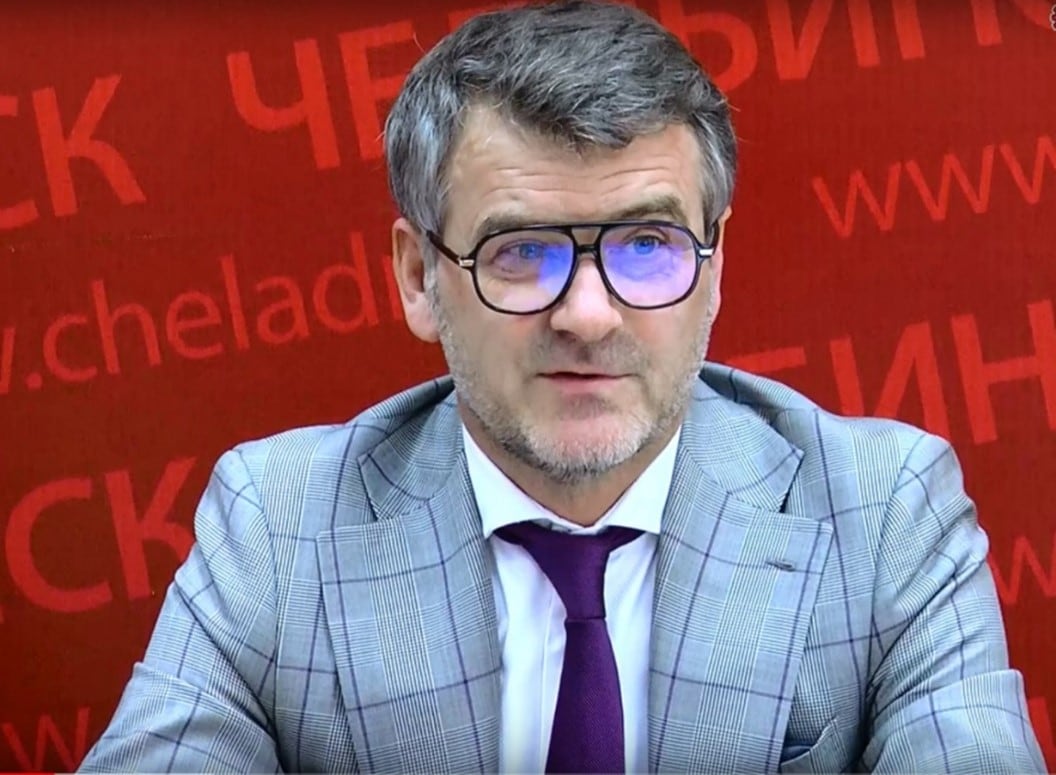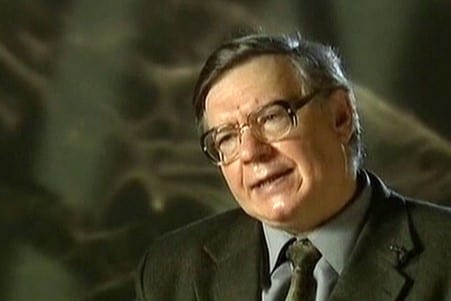
Biden and Putin in talks (Source: Rbc.ru)
Reactions in Russia were generally positive to Putin-Biden summit in Geneva on June 16, 2021. For some, the summit meant acknowledgement of Russia's great power status or vindication of a preconception that America was only interested in money and not human rights. The general consensus, however, was that the summit exceeded expectations and had halted the downward spiral in bilateral relations at the minimum, and had perhaps laid the basis for a broad agenda. Traditional areas of Russian-American cooperation such as arms control were back on track, and unfettered rivalry could give way to greater predictability.
A report on reactions to the Biden-Putin summit follows below:
Deputy Foreign Minister Ryabkov: The Most Important Result Of The Summit Was The Resumption Of The Strategic Dialogue Recapturing The Spirit Of The Reagan-Gorbachev Era
Sergei Ryabkov, Russia's deputy foreign minister responded to the following question from Kommersant journalist Elena Chernenko:
— Can you comment on the significance of the US - Russian presidents’ joint statement on strategic stability, including their commitment to the famous Gorbachev-Reagan principle of the unacceptability of nuclear war?
Ryabkov: "I can compare [its significance] to the prolongation of the US-Russia treaty on Measures for the Further Reduction and Limitation of Strategic Offensive Arms ([New] START Treaty - Kommersant). This is Washington’s second step aimed at bringing back common sense and a responsible conduct to key aspects of international security.
"We are satisfied that it was possible to formalize the intention to begin a focused and intensified dialogue in this sphere. The concrete aspects were formulated on how, in what format, and on what topics this dialogue with our American colleagues will commence.
"To confirm the principle that, 'there can be no winners in a nuclear war and that it should not start,' is a significant achievement.
"To be honest, in recent years there were growing doubts about Washington’s readiness, doctrinally and conceptually, to follow this sole possible and sound principle when it comes to a responsible attitude towards the world's fate. It’s not just a figure of speech and some pathos words; this is simply how the things are.
"So when [in deliberations] we have reached the straightforward, defined and understandable principle, which was reached 35-odd years ago, we had a sense of a greater inner confidence. Ultimately, this is the only way responsible nuclear powers possessing the largest nuclear arsenals can behave in today’s world. Any 'games' with this principle, ambiguities, artificial exacerbation are all not just harmful, but dangerous. Now we have a point of reference. This is a very important result of the summit both in a bigger political picture and in purely practical terms."[1]

Sergei Ryabkov (Source: Interaffairs.ru)
Duma Speaker Volodin: Biden Acknowledged Russia's Great Power Status
Duma speaker Vyacheslav Volodin contrasted Barack Obama's disparaging reference to Russia with Biden's show of respect. This showed how, thanks to Putin, Russia had come up in the world:
"A thank you to our President Vladimir Vladimirovich Putin, who is doing everything to develop and strengthen Russia, to ensure its security. As a result of the decisions he made to support our citizens, businesses, regions, it was possible to minimize many risks and save lives.
Thanks to the policy pursued by our President, Russia is respected in the world.
In 2014, Obama called Russia a 'regional power', yesterday during a meeting with Putin, US President Joe Biden said that 'Russia is a great power.'"[2]

Duma Speaker Vyacheslav Volodin (Source: Rg.ru)
Russian Lawmakers: The Summit Exceeded Expectations: Grounds For Cautious Optimism
Sergei Zheleznayak, a member of the Duma International Affairs Committee, voiced optimism:
"The summit could become an impetus to reducing tensions between our countries and gradually restoring trust, though it’s a two-way road."
"Putin’s positive assessment of the meeting with Biden suggests that our countries have prospects for restoring cooperation in those areas where Russian-U.S. cooperation is necessary in the interests of peace and sustainable development.
Leonid Slutsky, the chairman of the Duma International Affairs Committee believed the summit was at least a modest success:
"The first Putin-Biden summit can be considered, if not successful, then a step toward detente and the removal of an 'overload' in bilateral relations."
“The negotiations may have somehow exceeded skeptics’ expectations, but you shouldn’t fall into euphoria either."[3]
The verdict of the Federation Council's Deputy Speaker, Konstantin Kosachev] was that the talks were productive. The senator recalled that on the eve of the summit there were many dark predictions that the talks wouldn't be successful, or that the presidents would just exchange arguments, instead an agenda for going forward has been reached.[4]
Vadim Dengin, a member of the International Affairs Committee of the Federation Council, agrees that Putin looked decent despite the tremendous tension ahead of the meeting.
SUPPORT OUR WORK

"Before the summit, the Americans heated up the atmosphere, Biden's apparatus was scary. And now it's nice that projected light at the end of the tunnel has nevertheless glimmered. Getting ambassadors back to work is an important step in identifying common ground."
Dengin voiced the hope that the summit's success would have a multiplier effect on European attitudes towards Russia that had recently worsened
"We hope that all this will cause an adequate response from both Europe and those countries that are inclined to be Russophobic. Guys, you all depend on us, on what Russia and America say! We are all constructive. We hope it will bring quality results."[5]
International Affairs Expert Suslov: The Summit Created An Agenda For Bilateral Relations
Dmitry Suslov the Deputy Director of the Center for Comprehensive European and International Studies at the Higher School of Economics believed that the Geneva summit had created an agenda for bilateral relations:
"The summit was very important, it has led to significant progress in Russia-US relations. First, an agenda has been created for these relations, so the situation is totally different from what it was several months ago when the Russian-US agenda ceased to exist...."We were unable to maintain dialogue, let alone make agreements. And now, judging by the statements that both Putin and Biden made, an agenda has been created, which is rather wide. It covers strategic stability, cybersecurity, the Arctic, and diplomatic relations...The launch of dialogue in areas that both parties described and fields of cooperation does not require any preliminary concessions. That said, the parties will cooperate without giving up their interests, values, and vision of international relations, and their role in the world. This is about mature and healthy confrontation rather than the unhealthy one that we saw in the past four years."
Each side approached the meeting pragmatically, noted Suslov."The US is not interested [in escalating tensions] because it seeks to focus on containing China, while Russia would like to escape new sanctions and a new arms race, so the parties have confirmed their interest in stabilizing relations, even though they remain rivals."[6]
Political Strategist Minchenko: The Two Leaders Reduced The Degree Of Confrontation
Political strategist Yevgeny Minchenko scoffed at the "hotheads in the Russian media" who were handicapping the summit as a sports competition in which Putin was the victor. According to Minchenko, the question of who would prevail, Putin or Biden was never on the table.
-"The issue was how to stop the confrontation, which had reached an indecent state. And the presidents made an attempt...The return of the ambassadors is a good signal. The rhetoric is calm enough - that's good. What will happen next, we'll see. I am not optimistic. But they somewhat reduced the degree of confrontation."[7]
Political Scientist Bashirov: America Is About Money
Political scientist Marat Bashirov, disregarded Minchenko's advice and claimed that Putin won. What interests the Americans is money and not human rights.
“I always repeat that America is about money, so Biden spoke today about two key things: security and money,” states Bashirov. - From his lips, we have not heard harsh language on the protection of human rights, for example. The most serious [thing he had to say] in this regard was the wish 'if you want to improve the investment climate, let go of [American investor Michael] Calvey.' This is a signal that America is ready to invest. Most likely, this is being implemented in energy projects."[8]

Marat Bashirov (Source: Lentachel.ru)
America Watcher Vasiliev: Same Old Mantras
Not all observers were optimistic given the residue of mutual suspicion and advised taking a wait and see attitude.
Political scientist Georgy Bovt claimed that while the two leaders sought to moderate the tone their speeches were still spiced with enough "pepper".
" The criticism was restrained. But it was clear which questions are the most acute. These are human rights, Navalny and cybersecurity. Putin argued about this with Biden in absentia at his press conference, and Biden also responded indirectly. This confirms that there was a face-to-face discussion. And it will be an annoying moment for a long time to come."
Bovt said that it's premature to believe that a dialogue has been restarted between Russia and the United States. The return of the ambassadors marked no new ground as the head of the American diplomatic mission, John J. Sullivan, announced a few days ago that he was going to Moscow.
Time will tell said Bovt: "We agreed to start negotiating, and how it will go, we do not know. May our Foreign Ministry forgive me, but I would cite Biden, who quite accurately described the results of the negotiations. He said that they [the results] would be clear in six months, if the consultations on specific areas ended with something."
"There are also complex issues between countries, and each of them requires very long and painstaking work."
“We agreed to conduct a dialogue on strategic stability, but it’s not clear how it will go,” says Bovt. - We agreed to discuss cybersecurity, but where will they arrive on this topic... so many unfriendly steps have accumulated there that it will be difficult to clear them out. So, only after a while, will we be able understand what this summit was like.[9]
Vladimir Vasiliev, head researcher at the Institute for the United States and Canada, was also disappointed by the absence of immediate results. He also detected a lack of enthusiasm on the American side and believed that although presidents and secretaries of state change they repeat the same things. In an interview with Gazeta.Ru, called the meeting between Putin and Biden "a conversation about red lines."
He warned that these red lines were subject to unilateral interpretation. “If the Americans decide that Russia does not comply with the rules in some area, be it human rights or cybersecurity, they can take some kind of retaliatory action themselves,” the Americanist said.
Vasiliev also pointed to the low efficiency of the negotiations:
“For now, the result is to return the ambassadors, and then start talking on the entire spectrum of issues. Groups or structures that will work on these issues will be created, ”Vasiliev continued.
Vasiliyev described the American rhetoric as "rather mild" and noted that Biden's statements did not take the form of an ultimatum, but resembled "advice from a kind uncle" who "gives warnings from the bottom of his heart." Vasiliev, believed that the "usual set of words" betrayed a "lack of enthusiasm."
"There is no progress, and the set of words does not change from president to president, from one secretary of state to another secretary of state." [10]

Vladimir Valisiev (Source: Abnews.ru)
Liberal Reaction In Russia
Political scientist Ivan Preobrazhensky, writing in the liberal Rosbalt, believes that the summit was more important for Putin than for Biden: "For Vladimir Putin, this was the biggest international summit meeting in the last couple of years. Well, his American colleague ended his first major European tour in this way.
"The centerpiece of this trip for Joe Biden was the NATO summit and the meeting of the leaders of the EU member states. The United States needs their support in the inevitable future confrontation with China. Washington expects maximum neutrality from the Kremlin in this area".
Like others, Preobrazhensky believes that the summit was a pleasant surprise in the fact that it took place: "No one expected a breakthrough in bilateral relations from the Biden-Putin summit. Actually, the sensation was that the two presidents met face-to-face. Especially when merely a month ago the 'collective West' was seriously frightened of a renewed war in Donbass or even a direct Russian attack on Ukraine."
The press conferences following the meeting were revelatory: "Vladimir Putin, in particular, has practically openly stated his views on the nature of the Russian conflict with the West. The United States, he said, supported the 2014 coup in Kiev. Russia's further actions in Crimea and Donbass were only a response. But now it is Washington's support of the non-systemic opposition in the Russian Federation that is the reason why the Kremlin is suppressing it. In general, the source of both foreign and domestic policies of Putin, if you look at it through the eyes of the Russian leader, turns out to be the United States. The Geneva meeting showed that anti-Americanism is the lynchpin, and virtually the main factor for Putin."[11]
Biden, in contrast was much more balanced and rational than Putin: "Joe Biden is another matter. He came to the summit with more specific proposals, for example, a list of 16 industries in which cyberattacks should be abandoned. Based on his statements, Russia is important for the American leader as a potential source of concern – not as much for the United States as for its European allies. Therefore, while reminding the Kremlin of human rights violations, Biden wants to speak to him [Putin] in the language of interests...some Russian aspirations can even be supported if there is at least confidence between the countries."[12]
Nikolay Ulyanov, editor-in-chief of Rosbalt was pessimistic about the meeting even if Putin would draw closer to the Americans
"So, can Biden be victorious today? Sure, he can! Will the Russian people live better after that? - Probably not. Who will benefit from all this in Russia? - Putin’s elites and boyars...
"But today is truly Putin’s day. He won again without fighting. His generals and oligarchs give him a standing ovation, awaiting a prompt lifting of sanctions in order to integrate even further into Europe. It’s all already happened under the Tsarist rule in Russia: Elites were wearing orders of the Holy Roman Empire on European uniforms; state officials had dreams of a Byzantine Empire; while the people at the bottom of the social ladder were disenfranchised."[13]
In contrast to Ulyanov, Russian opposition figure Vladimir Kara-Murza was upbeat about the results of the summit:
“For the first time in many many years, we saw an American president put the issue of human rights front and square in these bilateral talks.”
“For many, many years, we have seen American presidents of both parties completely ignore this issue in the hope, I guess. of finding some sort of accommodation with Putin on the international stage. Apart from being completely immoral, this approach is impractical because, when it comes to Russia, domestic repression and external aggression are two sides of the same coin."[14]
[1] Kommersant.ru, June 16, 2021.
[2] T.me/vv_volodin, June 17, 2021
[3] Themoscowtimes, June 17, 2021.
[4] Vz.ru, June 16, 2021.
[5] Gazeta.ru, June 17, 2021
[6] Tass.com, June 17, 2021.
[7] Kp.ru June 17, 2021.
[8] Kp.ru June 17, 2021.
[9] Kp.ru June 17, 2021.
[10] Gazeta.ru, June 17, 2021.
[11] Rosbalt.ru, June 17, 2021.
[12] Rosbalt.ru. June 17, 2021.
[13] Rosbalt.ru, June 16, 2021.
[14] Themoscowtimes.com, June 17, 2021.




